He had a hundred names, but he chose his last and most prominent, Ho Chi Minh— the Bringer of Light.
He had a hundred names, but he chose his last and most prominent, Ho Chi Minh— the Bringer of Light.
“Freedom for my people, independence for my country, that's all I want, all I understand.”
On this day, in 1890, one of the giants of the 20th century entered the world. The Light Bringer. The father of the people. The deliverer of Vietnamese Independence. One of the greatest human beings to have walked this world.
Uncle Ho.
He was a journalist, a poet, a thespian without compare, a revolutionary, a statesman, and most importantly of all, a truly compassionate man. He was the first Prime Minister of the Democratic Republic of Vietnam, and the founder of the Indochinese Communist Party, a founding member of the French Communist Party, and a founding member of the Third International.
He was born Nguyễn Sinh Cung. He begun his career as a student, by organizing fellow students to protect young boys who were being kidnapped by French colonial corporations for forced labour. Due to his anti-colonial activities, he was expelled from school and he eventually wounded up living in exile with hundreds of alias and disguises, dodging pursuers and anti-communists.
He had been a line Chef in Brooklyn. He was a Buddhist monk in China. He worked as a spy for Moscow. He was a card carrying member of the UNIA (The Universal Negro Improvement Association) in Harlem. He wrote articles and essays under alias to inspire independence and revolution at home, becoming a figure of legend. He even attended University in the USA at one point. And a college in the USSR.
During his travels, he experienced and understood the suffering of many oppressed peoples and colonial victims. He wrote extensively on the topic of systematic racism and on women's rights.
When it came to matters martial, he defeated the French Imperialists, and he expelled the Japanese Empire during WWII together with the Americans. The national coalition (that consist of all Vietnamese resistance fighters regardless of ideology) that defeated the Japanese, the Viet Minh, was organized by and named for him.
Twice the United States of America betrayed him (once for France, who wanted to restore colonial rule after WWII, and once- back to back- for the US South Vietnamese puppet dictatorship of Diem and then Nguyễn Văn Thiệu), but he overcame them, winning Independence for Vietnam. Three times if you include the time he presented a multi-document missive to U.S. President Woodrow Wilson in 1918 while he was in exile, to plead for aid in Vietnamese independence. They say President Wilson threw water at him and dismissed him, mistaking him for a hotel worker.
He had a hundred names, but he chose his last and most prominent, Ho Chi Minh— the Bringer of Light. He would visit Vietnamese villages in disguise, as an elderly wiseman spreading wisdom even during the heights of war.
He came to lead Vietnam because he was the only true leader they could have followed. He was their Thomas Paine, and their George Washington in one. During the Vietnam War, he actually had little overt power, but he was supremely influential.
Even many of those Vietnamese who were anti-communist admired him, for he delivered them from the French and the Japanese.
He died before the war was concluded. He never got to see his country reunited.
His compatriots would later go on to liberate Cambodia from the NATO and Chinese allied khmer rouge dictator, Pol Pot (who was supported heavily by the USA out of vengeance for their lost in Vietnam).
George Lucas' Star Wars Rebels were inspired by and designed after the Viet Cong, with the Empire as an allegory for the USA.
Image: Hồ Chí Minh holding his god-daughter, Elizabeth Aubrac, with her mother, Lucie Aubrac (a French Resistance fighter), 1946
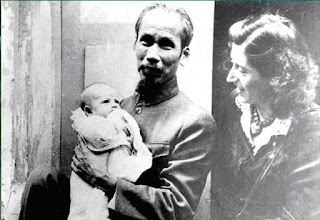

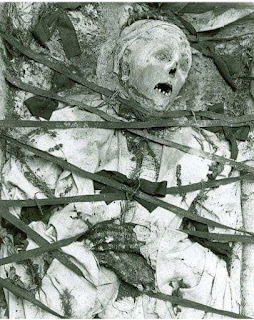
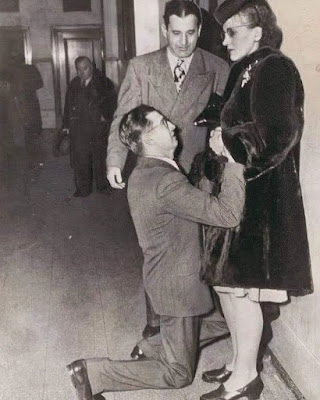
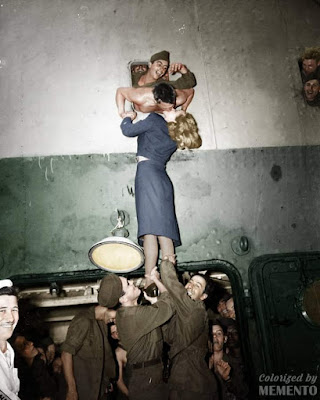
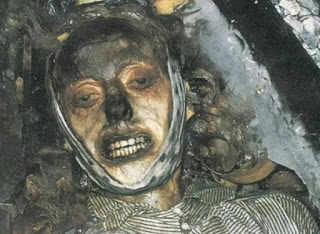


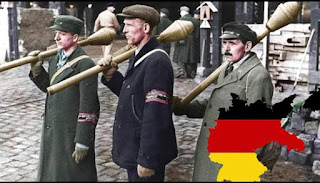
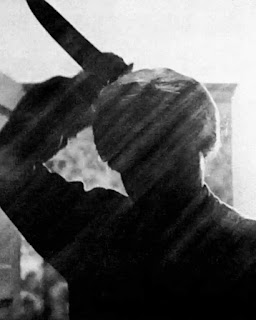
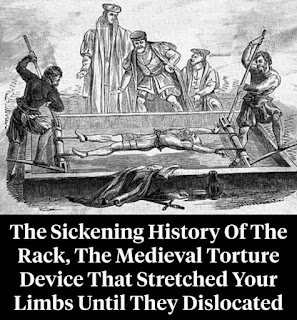
Comments
Post a Comment